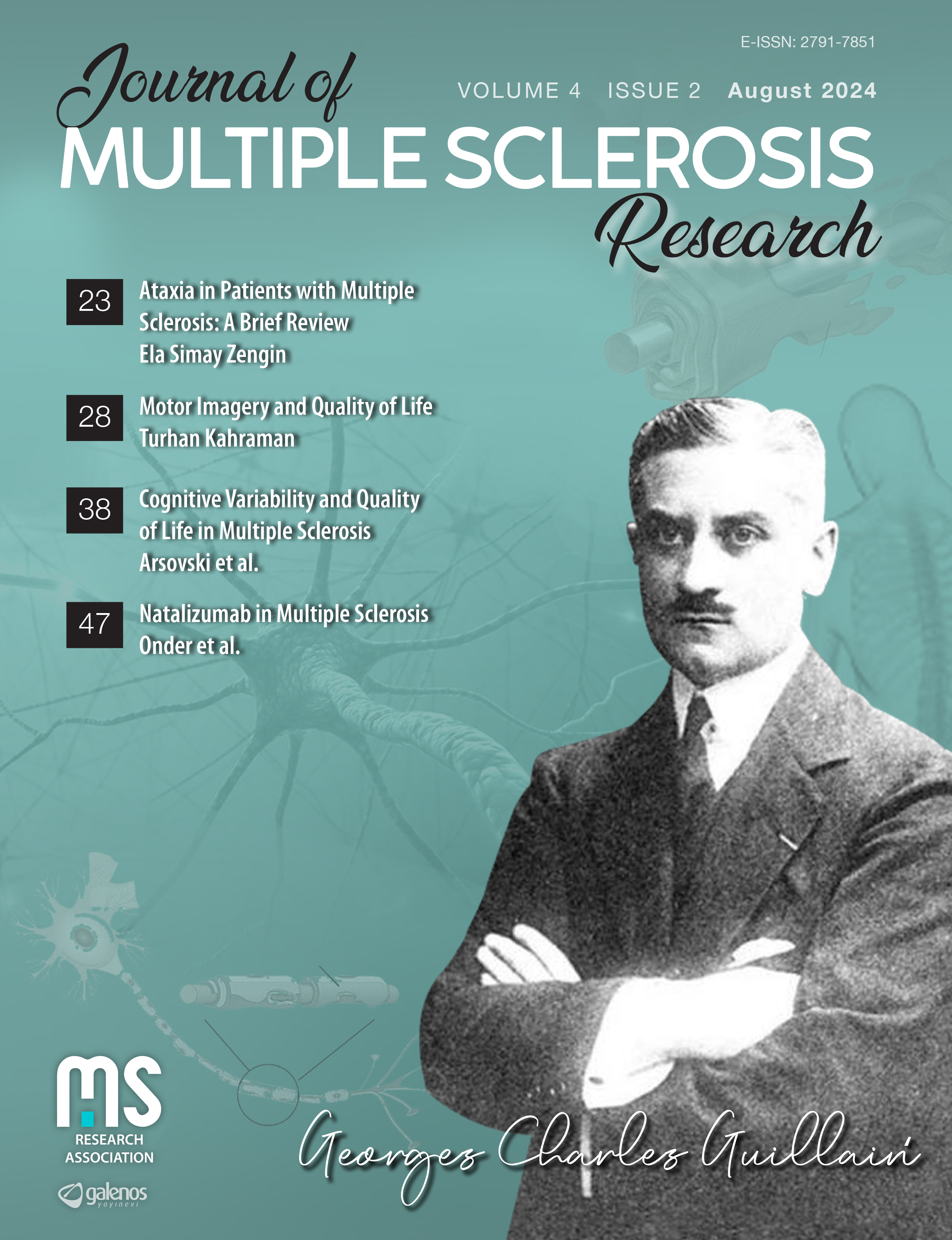Factors Associated with Depression and Anxiety Severity in Multiple Sclerosis Patients
Meral Seferoglu1, Nizameddin Koca2, Ali Ozhan Sivaci1, Sukran Yurtogullari31University of Health Sciences Turkey, Bursa Yuksek Ihtisas Training and Research Hospital, Department of Neurology, Bursa, Turkey2University of Health Sciences Turkey, Bursa Yuksek Ihtisas Training and Research Hospital, Department of Internal Medicine, Bursa, Turkey
3Private Bursa Hayat Hospital, Bursa, Turkey
INTRODUCTION: The most common psychiatric comorbidities with multiple sclerosis are depression and anxiety. The Beck Depression Inventory (BDI) and Hamilton Anxiety Scale (HAM-A) are validated tests that are easy to administer and interpret, and are widely used to determine depression and anxiety, respectively. The aim of our study is to examine the association of depression and anxiety levels via the BDI and HAM-A with disease duration, disability, and treatments in patients with Multiple sclerosis (MS).
METHODS: One hundred sixty-three MS patients who gave consent were included in the study. The BDI for depression and HAM-A scales for anxiety were applied. MS patients were analyzed in two subgroups: Relapsing-Remitting and progressive groups. Disability was evaluated with the Expanded Disability Status Scale (EDSS).
RESULTS: A total of 163 patients, including 116 women and 47 men, had a mean age of 38.50±9.63 years, and the mean duration of MS diagnosis was 7.49±6.18 years. The rate of anxiety was 82.2% and depression was 33.7% according to HAM-A and BDI scale, respectively. In subgroup analysis, it was observed that anxiety and depression scores of RRMS patients were significantly lower than progressive subtypes. Anxiety and depression scores of patients with EDSS ≤3 were found to be significantly lower than those with EDSS >3. We found that disease modifying treatments did not have a significant effect on anxiety and depression scores.
DISCUSSION AND CONCLUSION: In our study, it was observed that depression and anxiety were closely related to MS type and disability. The appropriate treatment of accompanying depression and anxiety is crucial for the management of the MS disease process.
Manuscript Language: English














 Copyright © 2024 | Journal of Multiple Sclerosis Research
Copyright © 2024 | Journal of Multiple Sclerosis Research